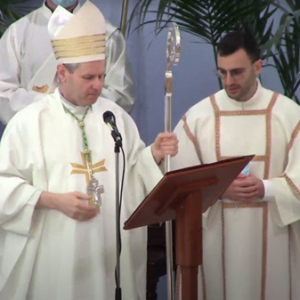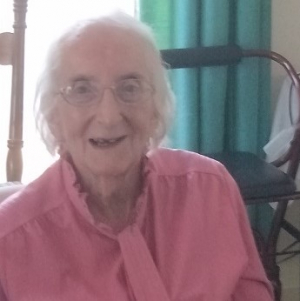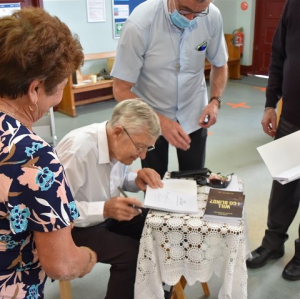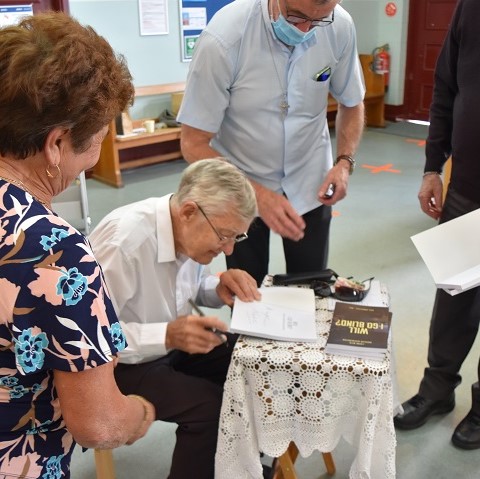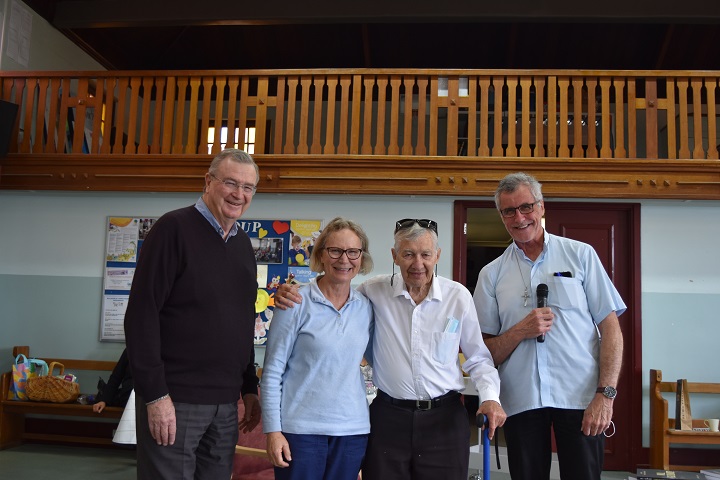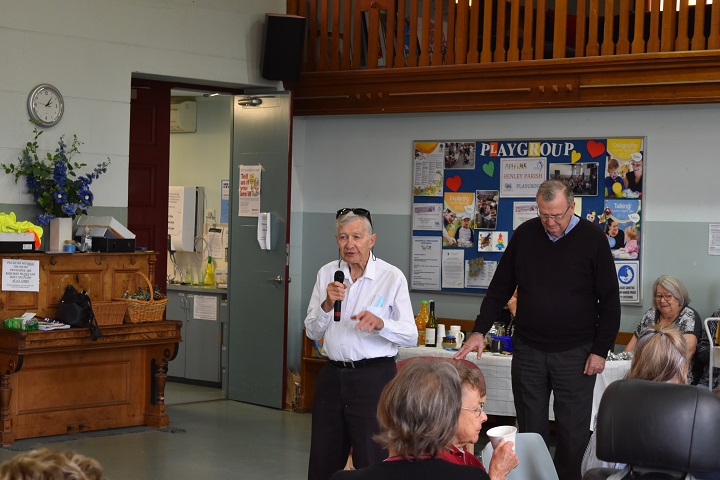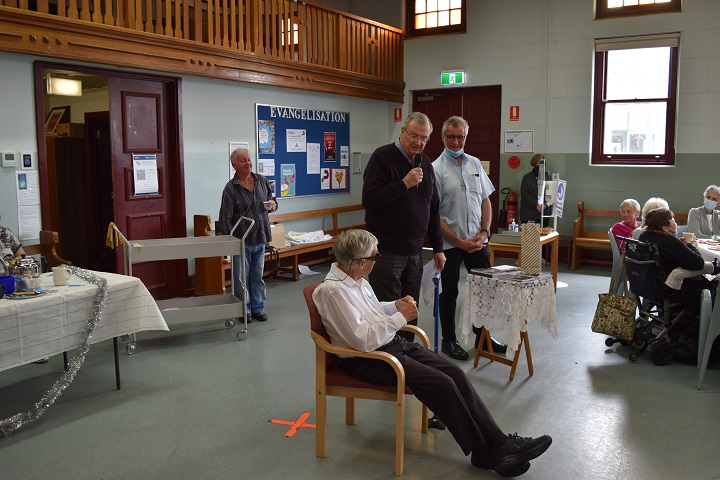Peter MALONE
Professor, The/ Richard Says Goodbye
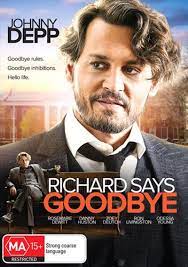
THE PROFESSOR/ RICHARD SAYS GOODBYE
US, 2018, 90 minutes, Colour.
Johnny Depp, Rosemarie De Witt, Odessa Young, Danny Huston, Zoe Deutch, Devon Terrell, Ron Livingston, Linda Emond, Siobhan Fallon Hogan.
Directed by Wayne Roberts.
While this drama is about terminal cancer and the consequences, it is also a drama set in academia.
Johnny Depp is a professor, with tenure at the University, teaching literature, encouraging creative writing. On a visit to a doctor, he is given six months to live. His immediate response is an aggressive denial, some ranting and raving.
However, his situation throws a great deal of light on how he lives his life, his relationship with his wife, Rosemarie De Witt, the tensions between them, her telling him she is having an affair with the College Dean, Ron Livingston. His daughter reveals that she is a lesbian and her mother insists that this is just a phase. The professor doesn’t get the chance to tell them the truth.
We see the consequences of the news of terminal illness in the way that the professor carries on his classes, sometimes ridiculing his students, dismissing them, hearing their topics for stories, most on the verge of walking out but there is a core group, including the niece of the Dean, who stay with him, support his unorthodox ways, have meetings in parks, restaurants, writing their stories. There is also a talented student in the class who comes to visit the professor, reveals that he is gay, entices him to an experience.
The professor does have a friend on the faculty, played by Danny Huston, who is put upon to give the professor sabbatical leave. Ultimately, at a dinner where the professor is humiliated at the table, he stands up and tells the truth about his wife, love for her, her affair, and the fact that he is dying.
Granted the sabbatical, the professor takes a path, two possibilities, but then dives into the river, death at his own timing.
Not quite the expected entertainment with Johnny Depp.
- The original title? The effectiveness of the alternate title?
- The titles, the focus on academia, the University, Chancellor, staff and tenure, life on campus, organisation, lectures, finance, monuments…? The focus on Richard, his life, impending death, principles, letting go, behaviour, death?
- The structure of the film, the focus on Richard, the chapter titles, the elegant lettering?
- Johnny Depp as Richard, his age, lecturer in English, his courses, students, wanting them to think independently, love of literature? The background of his marriage, love for Veronica, her career, sculpture, affair with the Chancellor? Love for Olivia, her declaration about sexual preference, her mother’s reaction, Richard making her apologise and Olivia accept it? Richard’s friendship with Peter, confident, telling him the truth about his death?
- Richard’s life, directions, regrets? The effect of the diagnosis? His decision to let loose? The students, the challenge of them to remain, the invitation to walk out, prospect of their results, those remaining, the puzzle, gathering them at the bar, his speeches, getting their responses, interest in literature, the waitress, the sudden sexual encounter? The reaction of the students? Meeting them outside, the student on Moby Dick, her grade? His cutting off the other giving her speech? Encouraging them with his philosophy of freedom? The student approach in his room, sexual curiosity? The sexual encounter?
- Peter, his place at the University, his relationship with his wife and her dominance? The friendship with Richard, his being upset, the tears, giving advice, the visit to the church?
- Veronica, her relationship with the Chancellor, telling Richard about his sexual organs, Richard quoting this in his speech? Veronica, disappointed in life, in love, her work, the dedication of the statue, Richard noting it was phallic? The ceremony, the Chancellor cutting the ribbon, the photo opportunity?
- The arrangement for Richard to be at home, for the sake of Olivia? The conversations between the couple at night? The meals with Olivia, his affirming her? Her relationship, the breakup and her being upset? The farewell to her father?
- The Chancellor’s dinner, socialising, Richard at another table, Veronica next to the Chancellor, Richard and his speech, Frank, the reaction of the various people are table, his revealing the truth?
- Richard, drinking, experimentation with drugs? Kicking over the traces, adolescent behaviour, yet his age, facing death, his collapses, people’s concern, taken to hospital?
- The finale, the farewell, his facing his death? The movement to the stars? Afterlife or not?
'61

61*
US, 2001, 116 minutes, Colour.
Barry Pepper, Thomas and Jane, Anthony Michael Hall, Richard Mansell, Bruce McGill, Chris Bauer, Jennifer Crystal Foley, Christopher McDonald, Bob Gunderson, Donald Moffat, Joe Griffis sea, Peter Jacobson, Seymour Cassell, Robert Joy, Michael Nouri, Renee Taylor, Pat Crowley.
Directed by Billy Crystal.
In the film of his autobiographical stage presentation, 700 Days, Billy Crystal expatiates on his love for baseball, his childhood experiences, growing up, going to matches, playing… So, it is no surprise to find that he has directed this film, baseball in 1961, Babe Ruth and his record, the attempts to break the record by the two rivals, Roger Maris and Mickey Mantle.
The main sympathy is for Roger Marris, played by Barry Pepper, who is a good player but not always popular with the team. There are scenes of his family life, his children, his wife, the tensions. There are scenes of practice, of matches. Thomas Jane plays Mickey Mantle, the expected champion, his personality, relationship with Roger Marris, the baseball authorities, expectations,, the rivalry to break Babe Ruth’s record. There is regret that Roger Marris was not honoured so well in his lifetime.
Which means that the film is a good sports film, but certainly is limited at times to baseball fans, American fans who appreciate the game, who know the history.
- The impact of this film in its time? Admiration for Billy crystal? For his perceptions on baseball? Memories of 1961 and the breaking of babe Ruth’s record?
- The atmosphere of 1961, costumes, décor, cars…? The musical score, songs?
- Audience knowledge of baseball, the history of baseball, 1961, big names of Babe Ruth, Lou Gehrig, Joe DiMaggio, Mickey Mantle…?
- The framework of Pat Marris, watching the television, her children of the game, Maguire and his breaking Roger Marris’s record? The memories of the past?
- The baseball sequences, for fans, for those not appreciating the fine points of the game, pitching, hitting, running, home runs? The baseball ethos in the US? The heroes, records? Babe Ruth and his record, his being honoured, the clerk, his wife coming to give the award to Roger Marris in 1961? Her not wanting her husband’s record broken, upset, coming to the match, the discussions with Pat? Ford Frick? Authority in the baseball world? Is trying to prevent the record being broken, adding the*to 61? His watching the games, frustrations, anti-Roger Marris?
- The range of all authorities, meetings, discussions, plans, programming? The discussions with the coach, with the players?
- The media, the range of reporters, familiarity with baseball, playing it or not, the pressure on Mantle and Marris, the sensational stories, photos, innuendos and insinuations, critical? The role of the Yankees staff to protect from the journalists? Milt, his support of Marris, upset at being stood up, yet continued support? And Simon, his hostility, his bets against the records being broken?
- Roger Marris, Barry Pepper’s performance, from North Dakota, his father and brother, family traditions, his skills, being picked up, training, selection, with the Yankees? Winning the award for 1960? His home life, the children, the scenes with his wife and daughters, the birth, unable to be present, going home, his joy?
- Marris and his skills, home runs, fielding? The response of the public? The press? His not smiling, is being condemned? His being bewildered? The impact of reading the papers? New
- Mickey Mantle, older, from Oklahoma, his background, career, success, stories about his wanting to give up at the beginning, so young, inexperienced? The clash with Joe DiMaggio, his being upset, DiMaggio coming to meet him? His skill and reputation, popularity? On the field? Of the field, family, philandering, drinking? His relationship with the authorities?
- The coach, support, single-minded, standing up to the authorities, supportive of his players?
- The competition for 1961, the Yankees and the possibility for winning? But attention coming to the breaking of Babe Ruth’s record? The progress over the year, run by run, each taking the lead? The impact for the public? The support of Mantle? The growing hostility towards Marris? Threat to kidnap his children? The hostile mail, death threats? The performance at the match and the hostile fan throwing the still? The overall impact?
- Mantle, luxury at the hotel, Marinus and Bobby and their friendship, support, getting the apartment, Mantle living with them, under control?
- The film is a film about friendship, the strong bond between the two men, supporting each other, boarding with each other, the clashes, mantle and his injuries, his arm, the injection and the wound, Roger support?
- The buildup to the end of the competition, Roger losing his skill, hitting the 60th run? Into the competition? It is set hitting the 61st? The response of the crowd?
- Pat, at home, supportive, the birth of the child, with the family, the glamour photo and her being upset, coming to support him, cheering him on? Mrs Ruth?
- Roger Marris and his achievement, never living up to the success of 1961, his death? The later changing of the rules and acknowledging that he had broken the record?
- A satisfying baseball film, friendship film, piece of Americana, for fans and for those who do not quite understand baseball?
Scary of Sixty-First, The
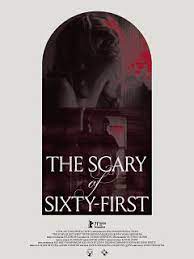
THE SCARY OF SIXTY-FIRST
US, 2021, 81 minutes, Colour.
Betsey Brown, Madeline, Dasha Nekrasova, Mark Rappaport.
Directed by Dasha Nekrasova.
This brief film will be of interest to audiences who like variations on horror themes as well as those who like to see small budget independent films.
The film was written and directed by two of the actors, Dasha Nekrasova and Madeline Quinn, with Dasha Nekrasova acting and taking the central role. The main focus is on the three women, some supporting men characters, including a boyfriend played by Mark Rappaport, not a particularly sympathetic or interesting character. The film is very much presented from a female perspective.
There are variations on the haunted house theme. Two of the young women are apartment searching in New York City, find an attractive but strange apartment (and real estate agent) and move in. While friends, one is edgy with some mental problems, the other simply acts on whatever whim takes her. The third woman appears at night outside the window, comes in the following day, states she is a researcher and is warning the women to leave the apartment. Then strange things happen in the apartment.
There are variations on the possession theme, the neurotic woman having all kinds of dreams and visions, strange and public sexual behaviour, and eventual leading to deaths and bloodshed.
The secret of the apartment is that it was owned by Jeffrey Epstein and used for his bizarre sexual encounters. We see some photos of him. However, his accomplice who was later arrested and tried, Ghislaine Maxwell appears in two sequences.
The strange woman says she is investigating the murder of Epstein in prison, not accepting that he committed suicide. She is an obsessed woman, then becomes obsessed with one of the women, sexual encounters, but tensions arising, the neurotic woman dead, a fight between the two other women and the woman of whims dead.
When the researcher returns to the apartment with the boyfriend, everything is clean, as if nothing had happened. Then she finds a note warning her off her research, indicating that whoever murder Jeffrey Epstein does not want any investigations.
The date at the end of the film’s 2019 – very quick moving for the screenplay and film considering that Epstein allegedly killed himself on August 10, 2019.
This week’s MSC news spots: Ireland, Vietnam, Pacific Islands Province, MSC Generalate.
This week’s MSC news spots: Ireland, Vietnam, Pacific Islands Province, MSC Generalate.
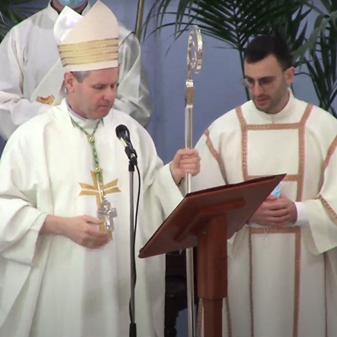
DEACON GIACOMO GELARDI MSC, IRELAND
Wednesday, December 8th marked a day of double celebrations for the Irish Province of the Missionaries of the Sacred Heart, and for our extended MSC family around the world, as we celebrated the ordination of Giacomo Gelardi MSC to the Diaconate on the 167th anniversary of the foundation of the Society of the Missionaries of the Sacred Heart.
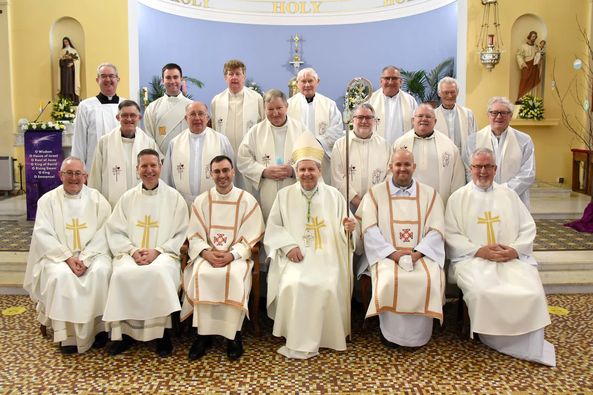
--------------------------
WANADOI, FIRST PROFESSION, JOSEFO LUI MSC AND TAOMWATI BUKATAAKE MSC
The Chevalier Family celebrated the Solemnity Feast of Our Lady of Immaculate Conception together with 167th Year Anniversary of the foundation of the Missionaries of the Sacred Heart at Chevalier Training Centre Chapel in Wainadoi, Wednesday 08th December, 2021.

It was also a joyful celebration of the First Profession of Br Iosefo Lui and Br Taomwati Bukataake. Fr Tamati Sefo MSC (Provincial) received their first vows and these were witnessed by the Chevalier Family and friends. Fr Tamati thanked the two newly professed members for their response to God's call like Mary who also responded "Yes" to God. He also thanked Tekea and Mateo who were also part of the novitiate this year for deciding to discern more about their vocation.
As the sevusevu (Fijian traditional welcome ceremony) was over, Fr Tamati took an opportunity to thank Fr Tetoaiti for taking on the difficult task of being a Novice Master and for assisting in the formation of these young men. Fr Tetoaiti has been a Novice Master for two years now and going for the third next year 2022.
As the Church worldwide celebrated the closing of the Year of St Joseph, Fr Tamati thanked God for the gift of St Joseph our Protector. St Joseph holds a special place in our hearts as we honor him as our protector.
SAIGON, THI AND COVID MINISTRY
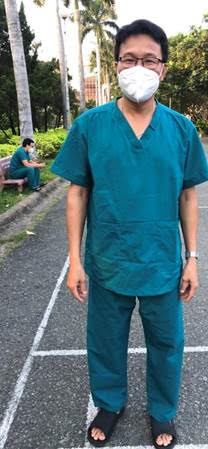
Hoàng msc, community leader, Vietnam informs us that after four months of lock down and with most people being vaccinated, Saigon is returning to normal. However, after a few weeks of eased restrictions, the number of Covid-19 infections is still high with approximately 13,000 cases a day. Thi, is the latest msc to respond to the Bishop’s request and is now volunteering in the hospital where patient numbers are high but medical workers are lacking.

Thi is ministering to patients whose condition is severe; there are around 10 hospital patients who die each day. Thank you, Thi, for being the compassion of Jesus to so many.
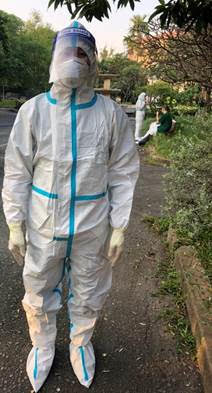
FROM VIA ASMARA TO MSC SISTERS GENERAL HOUSE, SUTRI, CELEBRATING FOUNDATION ADY
The MSC Leadership Team celebrated today (08.12) the feast of our foundation at the home of the Missionary Sisters of the Sacred Heart in Sutri, Italy. We are here for our last long meeting of 2021 and we take this opportunity to share together this special day for the entire Chevalier Family.
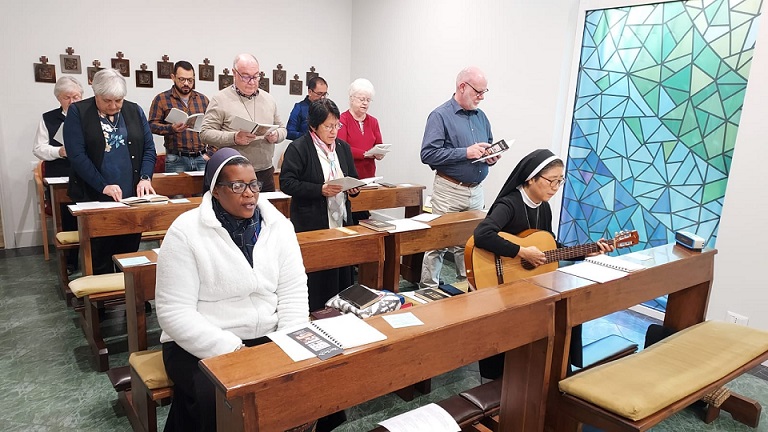
MSC Sisters celebrate Kathleen Boschetti, 60 years professed
MSC Sisters celebrate Kathleen Boschetti, 60 years professed
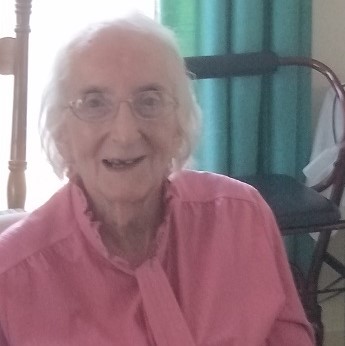
The Sisters gathered at Kew on Sunday August 12th - the first such gathering in a long lockdown tiime.
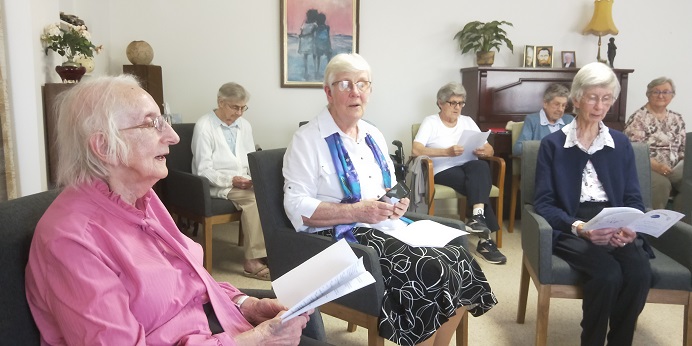
Kathleen was born in Shepparton, Victoria, into a musical family. Her talents and expertise as an educator and musician have been at the service of the church and community over these years, always with great generosity and good humour.

After study at the Pontifical Institute of Sacred Music in Rome, she worked at the Liturgical Centre in Melbourne and was also a consultant in music for the Archdiocese of Melbourne and beyond.
Kumali Coree: Our choir was founded in 1974 by Sr. Kathleen Boschetti MSC at the request of the SSS at St Francis’. Our name, Kumali Coree comes from an indigenous language and the meaning is Sacred Song.
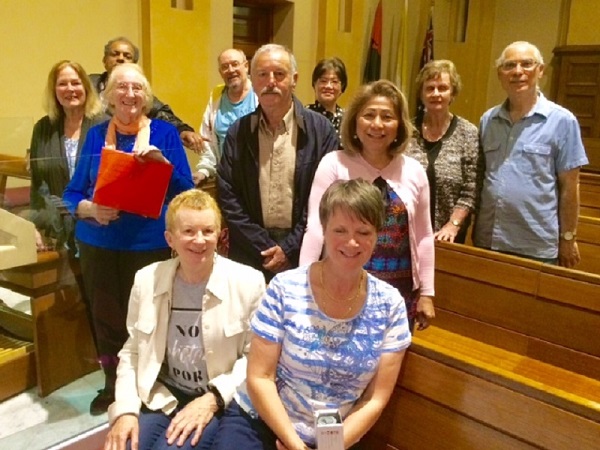
We also have a smaller group, Kumali Soloists, which is made up of members of Kumali Coree. We sing much local liturgical music and we rehearse on the last Thursday of the month at 5.30 pm in All Saints Parish in Fitzroy. We sing monthly at St Francis’.
Immaculate Conception, Foundation Day – and Noel Mansfield’s new book, launch, Henley Beach.
Immaculate Conception, Foundation Day – and Noel Mansfield’s new book, launch, Henley Beach.
With Paul Cashen and Peter Hearn
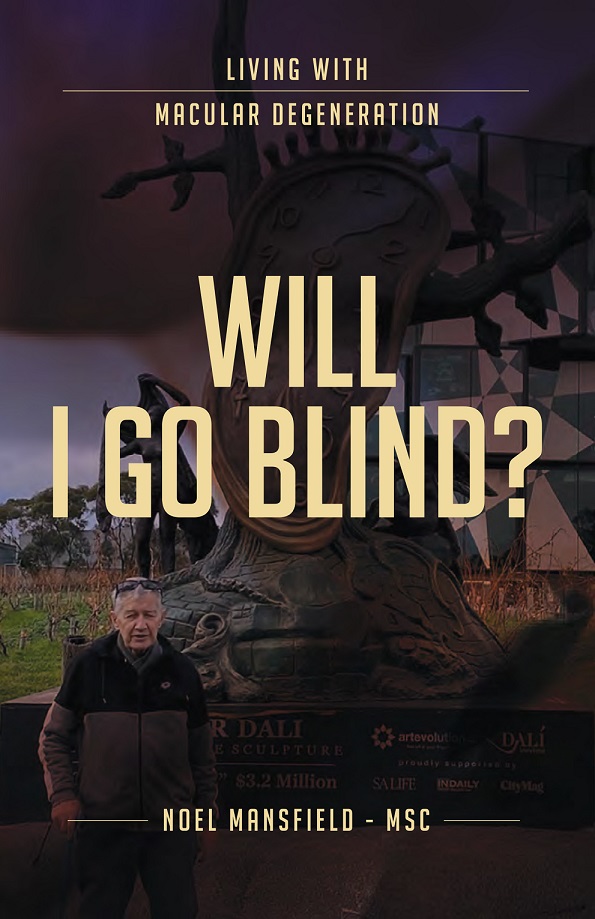
West Side Story/ 2021
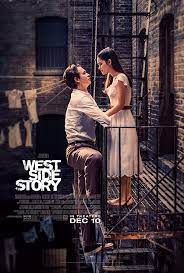
WEST SIDE STORY
US, 2021, 156 minutes, Colour.
Ansel Elgort, Rachel Zegler, Arianna DeBose, David Alvarez, Rita Moreno, Brian d'Arcy James, Corey Stoll, Mike Faist, Josh Andres Rivera, Iris Minas.
Directed by Steven Spielberg.
For many audiences, especially audiences who remember the wonder of 60 years ago, West Side Story was a key cinema experience, the music of Leonard Bernstein, lyrics of Stephen Sondheim, the choreography of Jerome Robbins, Oscar for best film, the director, Robert Wise, for cast actors, Rita Moreno and George Chakiris. It was a landmark film of the 1960s. It was New York, social issues, Americans being threatened by Puerto Rican migrants, Anglo-Hispanic clashes, and a Romeo and Juliet adaptation to New York City.
And now, 60 years later, Steven Spielberg acknowledging that it was the key musical of his growing up, directs his first musical film. And, so many critics and audiences wary of a remake, have praised this new version. For those who treasure the 1961 film, they will be happily reminded throughout this version of why they enjoyed the original so much.
But, 60 years later, with the developments in technology, effects, cameras, editing, this is very much a 21st-century version. Arthur Lawrence’s original book has been adapted by Pulitzer-prize-winning, Tony Kushner.
The audience is immediately taken into the rubble of New York, demolition of neighbourhoods around 68th Street (and an image of the about to be built Lincoln Centre). And, in the open spaces where homes once stood, the Jets and the Sharks begin immediately to rumble. And, we are reminded of the gangs’ music and rhythms, the confrontations of and Americans and Puerto Ricans, vicious, insulting, violent. And, with the rhythms starting, we begin to anticipate all the rest of the familiar music, the songs.
One of the strengths of this version is that Tony, played by Ansel Elgort, who sings his songs, is given a much stronger and credible background than earlier, the fact that he established the Jets with Riff, that he was very violent himself, has spent a year in Sing Sing, but has looked into himself and wants to change. Riff and the others certainly don’t want to change. They are full of resentment. They want to fight, they want to rumble. And there are the police, the chief, as well has the officer immortalised in the song, Officer Krupke.
And, Rachel Zigler, with her Hispanic background, is more realistic than Natalie Wood was. However, Arianna De Bose, already winning awards for Best Supporting Actress, is a powerhouse as Anita, singing, dancing, dramatic, and the whirlwind exuberance of the song and dance, in America (now with crowds in the streets). As we watch her, we are reminded of Rita Moreno and her vitality in that role.
And Spielberg has invited Rita Moreno, turning 90 December 2021, to play a significant role, Valentina, widow of the drug store owner, who gives shelter to Tony, who supports Anita and Maria, who defies the Jets. She has several powerful scenes and it is she who sings Somewhere…
The familiar scenes are there, the fights, the police interventions, the attempted harmony with the dance where Tony and Maria see each other, a Romeo and Juliet neighbourhood balcony sequence, some religious aura as they make vows to each other, the inevitable rumble, knives drawn, deaths.
And, as Shakespeare once told the story, wrong messages, deaths and tragedy, star-crossed lovers.
There is certainly a place for both versions of West Side Story.
- 60 years since the original version? Its place in film culture? Audiences growing up with it, music, lyrics, story, New York version of Romeo and Juliet?
- Steven Spielberg and his career, his first musical, its influence in his growing up? His respect for the 1961 version? Continuity, changes, 21st-century technology?
- The status of West Side Story in American musical theatre, cinema, Leonard Bernstein, Stephen Sondheim, Jerome Robbins’ choreography?
- The setting, the period, the 1950s, the demolition of the neighbourhood, preparation for Lincoln Centre? The visuals of the neighbourhood, streets, buildings, slum areas, balconies, the shops, the drugstore? The demolition areas, the salt storage?
- The songs, their familiarity, the revelation of characters, situations, the melodies, from the gangs of New York to the romantic and wistful themes?
- The introduction of the gangs, the music, the songs, the choreography, the personalities, their appearances, the Americans, the Puerto Ricans? The visuals of the confrontation, attitudes, stances, scuffles, fights, sneers, the issue of Spanish and English, the putdowns? The Americans feeling they were being excluded? The Puerto Ricans finding their place in the US?
- The background of the police, Officer Krupke, his mediating, the chief and his visits, talks, stances, use of English, his interventions?
- The personality of the Jets, Riff and his leadership, with Graziela? The contrast with Bernardo, the leadership of the Sharks? Hostile attitudes, no holds barred?
- Introduction to Tony, the story of the confrontation, almost killing the boy, the year in prison, change, looking into himself, his working for Valentina, staying with her? Trying to talk sense into the others, their memories of him as establishing the Jets? Riff and his wanting him to go to the dance, refusal, his eventually going?
- The introduction to Maria, from Puerto Rico, new in New York City, Bernardo as her brother, his demands about her behaviour and Americans, her friendship with Anita? Trying on the dress, getting ready to go to the dance, with cappuccino? Her arrival, the vigorous dancing, the rivalries, the attempted making peace through the dance, the confrontations?
- Tony arriving, seeing Maria, Maria seeing him, then moving behind the set, the dance, the kiss, the quick establishing of the relationship, love? Bernardo and his intervention? Chino watching? The potential for jealousy? The challenges?
- Valentina, Rita Moreno’s presence and performance, running the drugstore, helping Tony? The background of her marrying an American? Taunts of betrayal? The wisdom, listening to Tony?
- After the dance, the balcony sequence, the songs, establishing of love? The plan for the next day, the subway, meeting with Tony, the outing together? Maria pleading with him not to fight? The ceremony of the vows and their marriage?
- The plan for the fight, the police interning some of the Jets, the taunting of Anybodys The dancing in the mess in officer cookie’s office?
- The buildup to the fight, the secrecy, the salt storage? Tony and Chino arriving, getting in? The taunts, weapons, knives, Bernardo killing Riff? Tony’s reaction, the fight with Bernardo, stabbing him? Everybody fleeing, leaving the bodies?
- Tony, the wounds, going to Valentina? The police, Anita, identifying the body? Her returning home, Tony and his being with Maria, their love, Maria pleading with Anita, that she could understand the love? Tony escaping?
- Chino, with the gun, looking for Tony? The police, Maria sending Anita with the message to Valentina, Anita, the rough treatment by the Jets, Valentina denouncing them, their being shamefaced, the wrong message about Tony? Valentina, hearing, telling Tony?
- Tony, desperation, into the streets, calling out for Chino, seeing Maria, his being shot, his death? The Jets and the Sharks, standing, watching, Maria and the confrontation, how to shoot the gun? The police arriving, arresting Chino, the solemn entourage with Tony?
- The range of songs, the vitality of Anita and the singing and dancing, in the streets, with the crowds, in America? The contrast with the shop, the cleaners, and Maria singing I feel pretty? Tony and his initial song, the search for what is just out of reach? The ensemble for Tonight? Tony singing Maria? Valentina singing There’s a place?
- The energy of the singing, the colour and energy of the dancing? The tragic aspects of the plot?
I Am JFK Jr
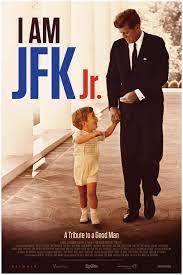
I AM JFK Jr
US, 2016, 90 minutes, Colour.
Directed by Derik Murray
This documentary on John F Kennedy Jr is part of the series, I am… They have all been produced by Derek Murray who sometimes works with direction, directing this film. The value of the series is that within 90 minutes they offer a portrait of the subject, a great deal of newsreel footage, photos, documents as well as a wide range of talking heads, members of family, friends, commentators, historians.
John F Kennedy Jr was very popular with Americans during the latter part of the 20th century. He was immortalised in the photos connected with the assassination of his father, especially standing with his mother and her urging him to salute the casket, a photo which recurs during the film and which endeared the Kennedys even further to the mainstream American public.
The film makes the point that the Kennedys were the closest Americans came to American royalty. Camelot was used in connection with the Kennedys. Which meant then that John Jr was heir apparent in the eyes of the public. It also meant that he was under continual scrutiny by the media, photos when he was little, prying photos as he was growing up, the fact that he was tall dark and handsome meant that he was very popular in magazines, covers, appellations of the sexiest man… By the end of the documentary, we are very conscious that he had very little private time for himself, the media always there, and, especially, at the time of the death of his mother.
And Jackie Kennedy appears in so much of the footage, in so many of the photos. Interestingly, the documentary acknowledges the presence of Caroline Kennedy and the family but her privacy is respected in this film. But, the American public could never get enough of Jacqueline Kennedy and then when she became Jacqueline Onassis, Jackie O. The film of the commentators emphasise the young man’s devotion to his mother, her love, her discipline, her continued support of him – and the pathos of her final illness and death and his dignified announcing this to the press.
Much is made of his failure of his law exams the first time round. Fortunately, he had something of a sense of humour and could refer to this later. There is always the issue of his relationships, girlfriends, his years with actress Daryl Hannah. And then there was his courtship and secret marriage with his wife, Caroline, the effect of such invasion of privacy and her. However, with the disappearance of their plane and their dying at a young age, this was ultimately not an issue for them.
Much is made of his establishment of the political-cultural magazine, George, in 1995, his range of interests, interviewing such characters as the hostile segregation advocate, George Wallace, governor of Alabama, and even inviting Hustlers Larry Flynt to an official event. Flint is one of the talking heads as is, surprisingly, Mike Tyson, more articulate than usual, respect for his friend John Kennedy who took up his cause when he was returned to prison.
Most of the talking heads are historians, political commentators. However, there is a welcome number of friends from his time at Brown University, illuminating what he was like at this stage of his life, and the establishing of firm friendships. It is Michael Reagan, son of the President, who is able to corroborate what it is like to be the heir of a president and be continually on the public eye.
There is the pathos of his love of flying and its leading to the disappearance of his flight, his death of the death of his wife and her sister.
An interesting and respectful look at the subject of the film – and a reminder of movements in America politics and history in the latter part of the 20th century.
French Dispatch, The
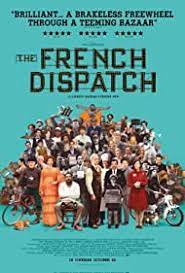
THE FRENCH DISPATCH
US, 2021, 107 minutes, Colour.
Bill Murray, Benicio del Toro, Adrien Brody, Tilda Swinton, lea Seydoux, Frances McDormand, Timothee Chalamet, Lyna Khoudiri, Jeffrey Wright, Mathieu Amalric, Steve Park, Owen Wilson, Bob Balaban, Henry Winkler, Lois Smith, Dennis Menochet, Larry Piling, Jason Schwartzman, Fisher Stevens, Griffin Dunne, Elizabeth Moss, Liev Schreiber, Christophe Waltz, Cecile de France, Rupert Friend, Alex Lawther, Saiorse Ronan.
Directed by Wes Anderson.
Indescribable is the word that comes to mind when trying to write a review of The French Dispatch. Well, not exactly indescribable – but a very, very hard to describe.
Perhaps, it is sufficient to say that this is a Wes Anderson film. For over 30 years, Anderson has been a significant figure in American cinema, always idiosyncratic, oddball characters, unexpected situations, comic and serious interactions, continually developing a very personal visual style, a combination of realism, using stylised sets to remind audiences of the artificiality of this storytelling, his films often like animation (remembering that he did direct two animation films, Islel Of Dogs), and, while we’re thinking about this, there is a sudden insertion of an animated car chase. (We remember the Royal Tennenbaums, Steve Zissou, Moonrise Kingdom, Grand Budapest Hotel.)
Wes Anderson had an admiration for the American magazine, The New Yorker, and it seems that this is a motivation for this story (and he does have a list of New Yorker contributors during the final credits). So, he has created a magazine, which started in Liberty, Kansas, called Picnic which then became more popular, having international correspondents and a French headquarters in (and the title of the city indicates the droll intentions of Anderson), Ennui sur Blasé. And he invites us there in 1975, the imminent death of the editor, and the closure of the magazine. However, we are also invited to observe the editor in action, the wide range of eccentric correspondents, and the insertion of three short stories by key writers.
Each of the stories is entertaining in its way but this reviewer preferred the first one by far. Tilda narrates In the rates the first story, Frances McDormand the second, Jeffrey Wright the third. The first story features Benicia del Toro, Lea Seydoux, Adrien Brody – and, that is Henry Winkler as one of the uncles looking far older than we remember him! The second story features Timothee Chalamet.. The third story opens with Jeffrey Wright (interviewed on television by Liev Schreiber), with Mathieu Amalric as the police commissionaire whose son is kidnapped and an odd guest spot by Willem Dafoe.
At the beginning, Anderson gives us a title page, indicating the range of the film’s contents, a kind of travelogue of Ennui, the three stories which correspond to various sections of the magazine, arts, protest, culinary… And, gives a spoiler that there will be a death, a final obituary section.
The cast list just to look at is rather exhausting! So many of this cast have appeared in other Anderson films, sometimes many of them, especially Bill Murray as the editor, Tilda Swinton as the art journalist, Edward Norton as the chauffeur. And you have to look quickly to catch some of the cast, especially the journalists in the editor’s room, and this reviewer missed Saoirse Ronan until he saw her name in the final credits.
And, there is always Wes Anderson’s dialogue. There are not so many laugh out loud moments. Rather, there are touches of irony, touches of the droll, and smiles at the clever repartee as well as the frequent eccentric interactions.
On re-reading this review, it seems like this is how we describe the indescribable.
- The idiosyncrasies of Wes Anderson’s films? Topics, characters, interactions, treatment? Realistic/stylised? Visuals, dialogue, comedy, serious themes?
- The French settings, the joke with the town, Ennui Sur Blasé? The parody of a French city? The visuals, the realism of neighbourhoods, the artificial sets? The settings for the three main stories? The asylum, the city student protests, the police dining room, prison, car chases? The variety of the musical score?
- Wes Anderson’s admiration for the New Yorker? His listing of the admired contributors? Homage, parody? The magazine from Liberty, Kansas? The French office, the French Dispatch? 1925-1975?
- The structure of the film, the inevitable explanation and chart, the focus on the magazine, the editor, his death, the newsroom and the assembled journalists, the introduction to each journalist, the insertion of the three stories, in colour and black-and-white, the aftermath, the death of the editor, the gathering, morning? And the burial in Kansas and the end of the paper?
- The wide range of the cast, so many of those who had appeared in Wes Anderson films?
- The introduction, Bill Murray as the editor, his demands, the staff in the room, firing the boy who cried, discussing each of the contributors, their idiosyncrasies, where they chose to do their writing? The final discussions with each of the three writers? His discussion of what they should leave in and omit? His vision for the magazine? Sudden collapse, death, lying in state, everybody mourning?
- The bike riding correspondent, the tour of the city? Pratfalls?
- The first story, the artist in the asylum, Simone and her posing, her control of the artist, straitjacket, in his cell? The scenes of posing, stances, exercises? His painting? His reputation in the prison? Cadazio in prison, bribing the guard with chocolates, seeing the paintings, his commercial idea, the arguments with the artist? The flashbacks to the artists youth, violence in the bar, the decapitations, crime, prison, the transition from the younger actor to the older? Cadazio and his uncles, their advice? Commissioning the painting, financial support, the years passing? Eventually coming to the prison, the admiration, the discovery that the paintings were on the prison walls? The elderly art expert and her views? Her advisor? Financial deals, the prisoners bashing the door down? Time passing and the reputation of the paintings? Simone, the finances, leaving prison duties? The artwork and the transition to Kansas, the building with the corn growing outside!
- The narration by Tilda Swinton, her character, art expert, clothes, orange hair, the style of the lecture, the slides, her writing the article?
- The second story, the transition, 1968, echoes of the Paris student uprisings, Lucinda telling the story, her personality, age, spinster, the contact with Zeffirelli, the discussions, his manifesto, editing it, writing it, the appendix? In bed with him? Her observing the students, Juliet and the discussions, the apology? Zeffirelli and his status, his parents, the device of the clash with the authorities, the playing chess, the mayor and his supervising, decisions, the riot squad, the students dressed for the barricades, the attacks? Lucinda and her vision of Zeffirelli and Juliet, writing to the moon? Advocating the romance?
- The third story, the French police, the chief, his son, the kidnapping? The dining room? The emphasis on food? Cuisine? The recipes, Nescaffier, the crisis, the thugs, his poisoning them, willing to poison himself, the aftermath and recovery, the discussion of the herbs? Roebuck Wright, background, personality, chosen by the editor, his investigations, the television interview with the host, (the joke about the sponsor), meeting the commissionaire, the kidnapping, Albert the Abacus, the complications with the thugs – animation for the car chase and the transition to animation? The complications of the story? The editor discussing the recipe to be included in the article?
- The aftermath, the assembly of all the contributors, the death of the editor? The doctor, the funeral?
- And the final information?
Total Control 2
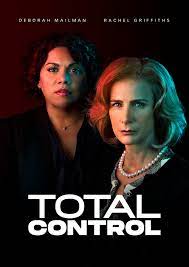
TOTAL CONTROL/SERIES 2
Australia, 2021, 6X 55 minutes, Colour
Deborah Mailman, Rachel Griffiths, Rob Collins, Wesley Patten, Anthony Hayes, William McInnes, Alex Dimitriades, Colin Friels, Harry Richardson, David Roberts, Rob Carlton, Wayne Blair, Harry Greenwood.
Directed by Wayne Blair.
Total Control was a popular and critical success on ABC television in 2019.
This second series, with the subtitle of Total Control of Herself, continues the story of Alex Irving, played by Deborah Mailman at the peak of her talent, former Australian senator, then MP in the House of Representatives, clashing with the Prime Minister (Rachel Griffiths), as well as the various other political figures, leaders Anthony Hayes and William McInnes.
The film shows Alex Irving’s background in Winton, outback Queensland, her son and relationship with his father, her extended family, her professor brother, Rob Collins.
At the beginning of the second series, Alex is in disfavour with the political parties because of her toppling of the Prime Minister, demanding an official enquiry into the deaths of two young girls, indigenous, in custody.
This series spends a lot of time in Winton, Alex’s difficulties with her son, Eddie (Wesley Patten), sullen, angry, truant, his uncle ineffectually trying to look after him. Alex is not a popular figure, many trolls on line, a particular hostile trial emerging with most offensive threatening messages throughout the series (ultimately exposed as a young staffer in the Prime Minister’s office). Alex is also reported to the department as not being a good parent and there is an investigation and report on her, her ultimately signing custody of her son to her sister while she worked in Parliament.
The character of Charlie Irving is much more developed in this series, his academic background, his taking charge of Alex’s campaign, his high principles during the campaign, his support, trying to control his sister, ultimately betraying her by revealing the name of the trial to the media – with an even further backlash making him the victim and Alex the aggressor. A strong presence is Jolly, initially hostile to Alex but becoming a firm supporter, outspoken.
Alex campaigns as an independent for her district in Queensland, with Jack Ramsey (Colin Firth) as the incumbent for 25 years, a good old boy and popular in the area but lazy and target of corruption and personal harassment charges.
And there is a relationship with Rachel, Rachel standing as an independent, with her personal adviser, Nick, Alex Dimitriades, discussions between the two women, burying the hatchet, the possibilities of collaboration, especially with further Independents. There are quite a lot of scenes of meetings, phone calls, machinations. And, there is also the presence of the Minister for indigenous affairs, Paul Murphy, played by the series director, Wayne Blair.
There is some tension in the final episode, the physical attack on Alex and Charlie, manipulations with loyalties of the independence, and Alex finally making it to the House and the vote that Paul Murphy would become the first indigenous Prime Minister of Australia.
- The popularity and impact of this political drama? Social issues? Indigenous issues?
- The Canberra settings, Parliament house, interiors? Sydney, North Sydney, affluence? Winton, the Queensland outback, the town, drought, homes, buyers, the roads and countryside? Longreach and but called in? The musical score?
- The continuity from the first series? The central characters? Political turmoil, the leaders, negotiations, intrigues? Rachel losing the prime ministership? Alex as senator, resigning, the deaths in custody, demands for the enquiry, her crossing the floor? The background of her life, family, her son, brother, life in Winton?
- Alex and her political career, the media and reactions, condemnations? Returning home, local issues, the decision to stand as an independent, discussions with Charlie, his work organising, his demands, and honourable campaign? Leo coming in, his age, technical skills? Jolly, her antagonism towards Alex, the qualifications, working in the bar, joining the team? Alex and the problems with Eddie, his truancy, his stubbornness, not communicating with his mother? Sullen? Charlie trying to supervise him?
- Rachel story, a political animal, resentment at losing the prime ministership, over two hours from the Prime Minister, Peter and his visits and negotiations, Lauri Martin? The visit from Nick, his proposal, that she stand as an independent? The media, the announcement, the discussions with Nick? His reputation? The think tank? And the giving money to Alex unbeknown? The campaigns, Rachel entering the press conference of the Prime Minister, the challenge? Her election? Communications with Alex? The antagonism is? Alex and her bitterness? Both elected, the discussions, burying the hatchet, wherever it was? The gathering of the independence in Parliament house, Georgian the old school, mockery, Justin and the Asian presence, the businesswoman, the Greens? The difficult meeting, Alex and meeting with Paul, the photo with the Lauri Martin? Her making her explanations? The decision to work together?
- Eddie, his age, relationship with his mother, her life in Canberra, his life in Winton, truancy, laconic, riding his bike, helping Stephen, the gift of the dog, the impact of Stephen’s death? Call to the principal’s office, the complaint to the Department, the official and her investigation, looking at the house, considering a crowded with the campaigners, her report, the need for a plan? The later negotiations, Faye and her decision to accept responsibility for Eddie? Alex signing it? The holiday together, possibility of some reconciliation?
- Charlie, his academic career, return to Winton, caring for Eddie, new employment in Bathurst, agreeing to be the manager of Alex’s campaign? His standards, his staff? Observing, the meetings, disappointment at the revelation of dirt on Jack Ramsey?
- Jack Ramsey, 45 years in Parliament, lazy, accusations of corruption, sexual harassment, interns pregnancy? His supporters, white and black? Absence from the first meeting? Coming to the second, the attacks on him, walking out? Stopping with the breakdown, talking with Alex, drinking the water? Congratulating her? The complaint about her parenting coming from his office?
- Leo, his work, the attacks on Alex, anonymous, vicious, his eventually tracking them down? This contribution to the campaign? Jolly, initial antagonism, joining the group, hard work, her contacts and the staring up against Jack Ramsey the meeting, Charlie angry with her, her continued support of Alex? Bright personality?
- The day of the election, the device of showing Alex digging in the dirt in the desert, 13 hours earlier, wanting Eddie at the photo opportunity, his not turning up, the noose in the garden, becoming frantic, the continued messages, indicating his death, buried in the desert, Alex Harry, Charlie following? But Eddie not bothering to turn up, Alex’s response?
- Going to the pub, the unexpected win? Going to Canberra, Charlie and Julie going to Canberra with Alex?
- Paul Murphy, aboriginal parliamentarian, discussions with Alex, loyalty to the party, sounding her out, the phone calls, the help with the parental enquiry, meeting at the bar?
- Discovery of the anonymous texter, Alex going to find him, the confrontation, his parents arriving, his age, working for the Prime Minister’s office, Alex confront him, making him read the text aloud, his reaction, her decision not to expose him? Her considering his age?
- Charlie revealing the identity of the troll, Alex upset, the man self-harming, his becoming the victim, Alex the aggressor, even more vitriolic attacks?
- The meetings between the independent candidates, Alex an attempt to form some unity, each with their own agenda, loyalties to Damien, loyalties to Lauri, the role of Paul Murphy?
- Rachel, aligning herself with Damien, yet giving the information about the discontented member, Alex came to see her, the discussion, her deciding to act independently after the treatment by the party? Alex with the numbers?
- Paul Murphy meeting with Alex, agenda, the support for him to plead the party, his taking over?
- The house of Representatives, the tension, Alex missing, the closing of the door is? The audience seeing the racist taxi driver, waiting for his opportunity, attacking Alex with the knife, the winter hand, is knifing Charlie? The ambulance, concerned?
- Alex, her hand, hurrying to parliament, for the opening of the doors, Damien and his smug manipulation, Rachel and her beginning to take a stand, Charlie arriving – and the prospect of having an aboriginal Prime Minister?
